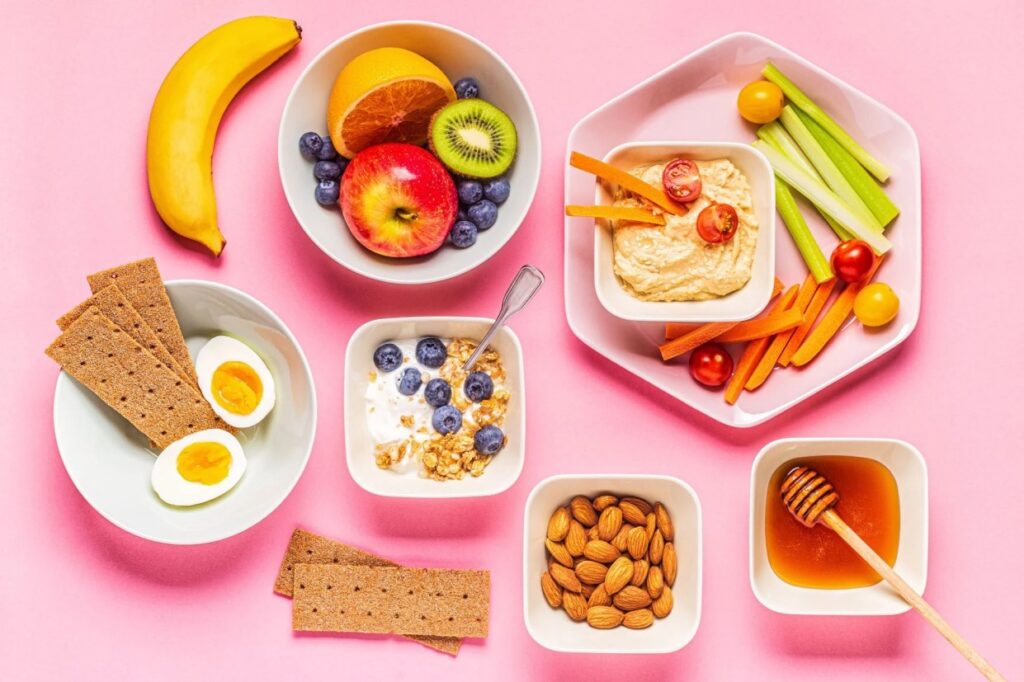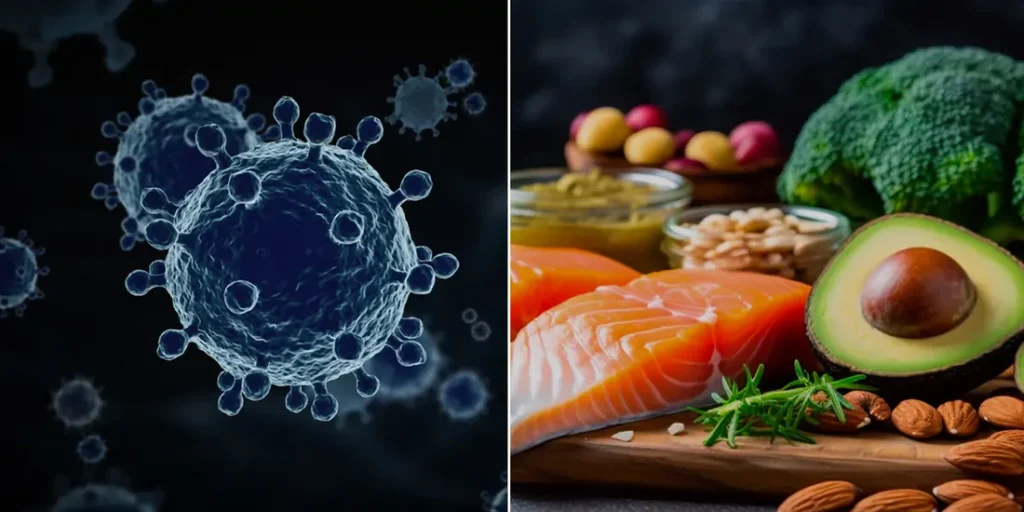Water is essential for life, making up about 60% of the human body. It plays a crucial role in maintaining bodily functions, from regulating temperature to aiding digestion.
However, many people overlook the importance of staying properly hydrated. When you don’t drink enough water, your body begins to show signs of dehydration, which can lead to various health issues.
In this article, we’ll explore what happens to your body when you don’t drink enough water. We’ll discuss the effects on your skin, muscles, digestive system, kidneys, and cognitive functions.
Understanding these impacts can help you recognize the importance of proper hydration and encourage you to make water a priority in your daily routine.

What is Dehydration?
Dehydration happens when the amount of water leaving your body exceeds the amount you take in. This imbalance can occur for various reasons, including not drinking enough water, excessive sweating, or conditions that cause increased fluid loss such as fever, vomiting, or diarrhea.
It’s important to note that dehydration is not always about the lack of water; it can also be caused by an imbalance of electrolytes, which are minerals like sodium, potassium, and magnesium that help maintain the body’s fluid balance.
When your body is dehydrated, your cells, tissues, and organs begin to feel the effects, as they are not receiving the necessary water to function at optimal levels.
Common Causes of Dehydration
- Inadequate Water Intake: Simply not drinking enough water during the day, especially during physical activity or in hot weather.
- Excessive Sweating: Activities like exercise, exposure to heat, or fever can cause you to lose water faster than usual.
- Illnesses: Conditions such as diarrhea, vomiting, and fever can lead to rapid fluid loss and dehydration.
- Diuretic Medications: Some medications, such as those for high blood pressure or edema, increase urination and can contribute to dehydration.
Signs and Symptoms of Dehydration
Dehydration can be mild, moderate, or severe. The severity depends on the extent of fluid loss. Here are some common signs and symptoms to watch out for:
Mild Dehydration:
- Thirst
- Dry mouth and throat
- Fatigue
- Decreased urine output
- Dark-colored urine
Moderate Dehydration:
- Dizziness or lightheadedness
- Dry, cool skin
- Muscle cramps
- Headache
- Rapid heartbeat or breathing
Severe Dehydration:
- Extreme thirst
- Very dry skin
- Sunken eyes
- Confusion or irritability
- Low blood pressure
- Fainting or dizziness upon standing
- Lack of sweating
If you notice any of these symptoms, especially the severe ones, it’s important to seek medical attention immediately, as dehydration can be life-threatening if left untreated.
The Structural Impact of Dehydration on Your Body
The effects of dehydration are not limited to feeling thirsty or dry mouth. When you don’t drink enough water, it can disrupt the structural integrity of your body in ways that you may not even realize. Let’s explore some of the key areas where dehydration takes a toll.
1. Your Skin Becomes Dry and Wrinkled
Your skin is the largest organ in your body, and it relies on water to stay healthy and supple. Dehydration causes your skin to lose its natural moisture, which can make it look dry, dull, and flaky. In more severe cases, dehydration can lead to premature aging, as your skin loses its elasticity and becomes more prone to wrinkles.
Water also helps flush toxins out of your body, and when you’re dehydrated, those toxins can accumulate, causing your skin to appear less vibrant. The result? A dull complexion that may show visible signs of aging faster than normal.
2. Your Muscles and Joints Become Stiff and Prone to Cramps
Water plays a crucial role in lubricating your joints and muscles. When you’re dehydrated, your muscles can become stiff, and you may experience more frequent cramps. This happens because the body requires water to transport nutrients to your muscles and to keep them hydrated. When the body doesn’t have enough water, your muscles and joints are less flexible, leading to pain and discomfort.
Dehydration can also increase the risk of injury during physical activity. Muscles that are not properly hydrated are more likely to tear or strain, which can significantly impair your mobility and quality of life.
3. Your Digestive System Slows Down
Water is essential for proper digestion. It helps break down food, absorb nutrients, and remove waste from the body. When you don’t drink enough water, your digestive system can become sluggish, leading to constipation and bloating. Without enough water, your intestines can’t effectively absorb the nutrients from the food you eat, which can lead to nutrient deficiencies over time.
In addition to constipation, dehydration can also lead to acid reflux, indigestion, and other digestive issues. If dehydration continues over time, it can cause long-term damage to your digestive organs.
4. Your Kidneys and Urinary System Strain to Function
Your kidneys play a critical role in filtering waste and excess fluids from your blood. To perform this function effectively, your kidneys need plenty of water. Without enough water, your kidneys can’t filter waste properly, which can lead to the formation of kidney stones or urinary tract infections (UTIs).
When you’re dehydrated, your urine becomes concentrated, and this can irritate your urinary tract. This increases your risk of UTIs, which can cause pain, discomfort, and even long-term kidney damage if not treated promptly.
5. Blood Circulation Becomes Less Efficient
Water makes up a significant portion of your blood, and without adequate hydration, your blood volume decreases. As a result, your blood becomes thicker and more difficult to pump throughout your body. This can put additional strain on your heart, forcing it to work harder to circulate blood. Over time, this can lead to increased heart rate and higher blood pressure.
Dehydration also affects your body’s ability to regulate temperature. Without enough water, your blood vessels constrict, making it harder for your body to cool down when you’re hot. This can increase the risk of heat exhaustion or heat stroke in hot weather.
6. Cognitive Functions Decline
Your brain is made up of about 75% water, so staying hydrated is essential for optimal brain function. When you’re dehydrated, your cognitive abilities begin to decline. You may experience difficulty concentrating, memory problems, and mood changes. Dehydration can also cause headaches, which can further impair your ability to think clearly.
In severe cases, dehydration can lead to confusion, disorientation, and even loss of consciousness. This is why it’s important to stay hydrated, especially if you’re engaging in mentally demanding tasks or activities.
7. Your Immune System Weakens
Your body’s immune system relies on water to transport nutrients to cells and flush out toxins. When you’re dehydrated, your immune system becomes less efficient at fighting off infections. This can leave you more susceptible to illnesses, as your body’s ability to produce white blood cells and other immune responses is compromised.
Water also helps maintain the mucous membranes in your nose, mouth, and throat, which are your body’s first line of defense against pathogens. When dehydrated, these membranes can become dry and less effective at trapping harmful microorganisms.
8. Your Hormonal Balance Becomes Disrupted
Water plays an essential role in regulating hormone production and balance. Hormones are responsible for controlling a variety of bodily functions, from metabolism to mood. Dehydration can interfere with the production of hormones, leading to issues such as fatigue, irritability, and even changes in appetite.
In women, dehydration can disrupt the menstrual cycle and lead to imbalances in estrogen and progesterone levels. For men, dehydration can affect testosterone production, which can impact muscle mass and energy levels.
9. Your Body’s Temperature Regulation Is Impaired
Water helps regulate your body’s internal temperature by facilitating sweating and heat dissipation. When you’re dehydrated, your body’s ability to cool down becomes less efficient. This increases your risk of heat exhaustion, heatstroke, and other heat-related illnesses.
In extreme cases, dehydration can cause your body’s temperature to rise to dangerous levels, leading to organ failure and even death if not treated quickly.
10. Dehydration Can Lead to Serious Health Conditions
Chronic dehydration can lead to a variety of serious health conditions, including:
- Kidney stones: When you don’t drink enough water, waste products can build up in your kidneys and form stones.
- Urinary tract infections (UTIs): Dehydration increases the risk of UTIs, which can lead to painful and frequent urination.
- High blood pressure: Dehydration causes your blood to thicken, which can increase your risk of hypertension (high blood pressure).
- Seizures: Severe dehydration can cause electrolyte imbalances, leading to muscle spasms and seizures.
How Much Water Should You Drink Daily?
The amount of water each person needs can vary based on factors like age, sex, activity level, and climate. However, general guidelines can help you determine how much water to aim for each day:
The 8×8 Rule: One of the most common recommendations is to drink eight 8-ounce glasses of water a day, which equals about 2 liters or half a gallon. This is a simple guideline that works for many people.
Institute of Medicine Recommendations: According to the National Academies of Sciences, Engineering, and Medicine, men should aim for about 3.7 liters (125 ounces) of total water intake per day, and women should aim for 2.7 liters (91 ounces) of total water from all beverages and food.
Adjust Based on Activity and Climate: If you’re physically active, you may need more water to compensate for fluid loss through sweat. Additionally, if you live in a hot climate or are pregnant or breastfeeding, your hydration needs may be higher.
It’s important to listen to your body and drink when you’re thirsty, but also be proactive in maintaining consistent hydration throughout the day.
Tips for Staying Hydrated
1. Carry a Water Bottle: Having a water bottle with you throughout the day makes it easier to take small sips of water consistently. Keep it on your desk, in your car, or with you when you’re out and about.
2. Set Reminders: If you often forget to drink water, set a reminder on your phone or use a hydration tracking app to prompt you to drink at regular intervals.
3. Drink Before You Feel Thirsty: Thirst is a late sign of dehydration, so try to drink water regularly throughout the day before you get thirsty.
4. Drink Water-Rich Foods: Incorporating water-rich foods into your diet can help you stay hydrated. Many fruits and vegetables, like cucumbers, watermelon, and oranges, are made up of more than 90% water and can provide hydration along with important nutrients.
5. Infuse Your Water: If plain water feels boring, try infusing it with fruits, herbs, or even cucumber slices to add natural flavor. This can make it more enjoyable to drink, encouraging you to consume more throughout the day.
6. Monitor Your Urine Color: A simple way to track hydration is by checking the color of your urine. Clear or light yellow urine generally indicates good hydration, while dark yellow or amber-colored urine can be a sign of dehydration.
7. Balance Your Caffeine and Alcohol Intake: While caffeine and alcohol are not dehydrating in small amounts, excessive consumption can lead to fluid loss. If you drink coffee, tea, or alcohol, make sure to balance them with extra water.
Hydration-Friendly Foods
In addition to drinking water, you can incorporate hydrating foods into your diet. These foods not only provide hydration but also deliver essential vitamins and minerals that contribute to your overall health:
- Watermelon: Composed of about 92% water, watermelon is a refreshing and hydrating fruit perfect for hot days.
- Cucumbers: With 95% water content, cucumbers are a low-calorie and hydrating snack.
- Oranges: Known for their vitamin C content, oranges are about 86% water and provide both hydration and immune-boosting nutrients.
- Strawberries: With 91% water content, strawberries are packed with antioxidants and hydration.
- Celery: This vegetable is about 95% water and is great for snacking while staying hydrated.
By combining regular water intake with these hydrating foods, you can maintain optimal hydration levels and improve your overall health.
Hydration Myths to Avoid
“You should drink exactly eight glasses of water a day.” While the 8×8 rule is a good starting point, individual hydration needs vary. Some people may need more, while others may need less.
“Caffeine and alcohol dehydrate you.” Moderate caffeine and alcohol intake are not significantly dehydrating, but excessive amounts can contribute to fluid loss.
“Clear urine means you’re over-hydrated.” While clear urine indicates good hydration, extremely clear urine may also indicate that you are drinking more water than necessary. A pale yellow color is typically ideal.
Conclusion
Water is a crucial component of your body’s structure and function. Dehydration can lead to a wide range of structural problems, from dry skin and stiff joints to impaired digestion and cognitive decline.
To maintain your body’s health, it’s essential to drink enough water daily and keep your hydration levels in check.
Remember, small changes in your hydration habits can make a big difference in your overall well-being. Stay hydrated, and your body will thank you for it!











